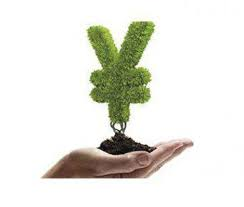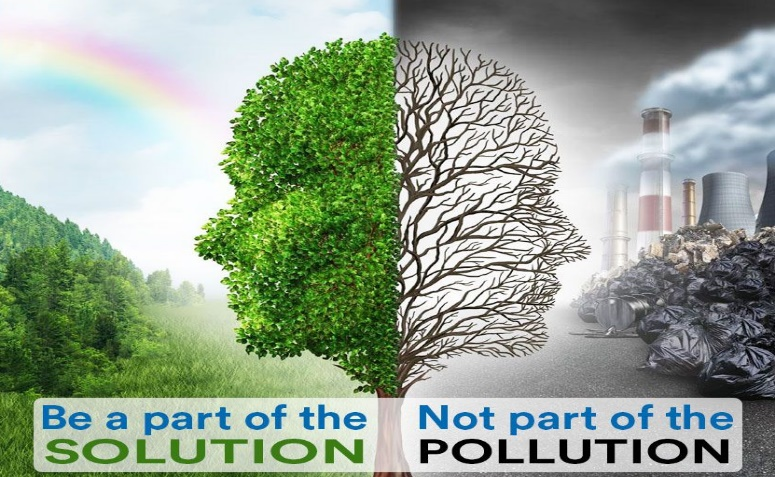
By Mr. Khalid Taimur Akram, Director,
Pakistan Research Center for a Community with Shared Future, Communication University of China (CUC), Beijing, China

Published on 6th July 2021

In the 21st Century C.E., non-traditional security threats have started to emerge more rapidly and quickly. The severe implications of environmental or non-traditional security challenges are associated with the non-conventional nature of the security paradigm of a country. No state is immune from environmental risks. Therefore, now the focus has been shifted to tackle non-traditional security threats emanating from social, economic, and environmental stressors. Environmental issues, especially climate change, has jeopardized human societies. With the emergence of multipolar global order, transforming ideas, multiple modernities, and different civilizational patterns, the world is witnessing a change. The countries are now more inclined towards cooperation to combat common global issues together. In the changing realm of international relations and world politics, China has emerged as a leader to integrate nations to solve the common issues, i.e., climate change and others. In this context, the grand narrative of community with a shared future for mankind has provided a great model to counter the risks and constructively work for the global peace process. One of the major contours of the grand idea is to make efforts to have a clean, green, and beautiful world by pursuing green and low-carbon policies. Therefore, it is pertinent to discuss and highlight Chinese sustainable policies for a clean and green world. The study provides a brief assessment of Beijing’s startling strategies to tackle climate change and implement policies and plans for inclusive sustainable development. Moreover, the study also provides associated options for BRI and allied countries in order to cooperate with China to mitigate the repercussions of non-traditional threats.

Clean, Green, Beautiful and Resilient World: An Overview of Beijing’s Advanced Policies
Under the visionary leadership of His Excellency President Xi Jinping, China acknowledges that climate change and environmental degradation are real and pressing threats economic prosperity and well-being of nations. Therefore, with the internal structural adjustments, China has devised an integrated policy framework for sustainability. The global issues call for global solutions and cooperation. In this regard, China has also been cooperating and assisting other countries in tackling these grave perils together.The greening of China’s manufacturing system is key for realizing a more sustainable economy. The transformation makes headways and state-supported Research and Development (R&D) efforts show exceptional outcomes and benefits in green technological innovation. Beijing’s startling policies with digital advancement and edge provide a great model for other countries to follow and adopt.
China has announced that it will be completely carbon-neutral by 2060. In this aspect, the country has played a pivotal role by emphasizing eco-environment investment and implementing green and sustainable policies. The green trajectory has not been slowed down even in the times of the Covid-19 pandemic. Certain green policies regulated by China in the Covid-19 are mentioned below:
Proposed Policies | Regulations | Period |
Law: Prevention and control of environmental pollution by solid waste | Strict control on waste control management and disposal | April 2020 |
MasterPlan: Major projects on national key ecosystem protection and restoration (2021-2035) | Productive plans for ecosystem protection |
April 2020 |
UpdateDraft: Green financing catalogue | Coal investment no longer eligible for green finance | May 2020 |
Guidelines: Promoting climate change finance and investment | Prioritizing green investment in the financial sector |
October 2020 |

The preview of the plans above-mentioned reflects China’s strong commitment to attaining the goal of Greening country. This envisaged that the country’s road to stability had paved with the innovative narratives of its incumbent dynamic leadership. The veteran statesmen consider the ecological environment as an integral aspect to foster economic growth. China has been progressing in developing renewables. In this context, the country has become a global leadership and the biggest industry to produce solar panels. It has shifted towards renewable energy to fulfill its energy demands. The country’s energy transition has made remarkable progress in the last two decades. The state-owned utility corporation, State Grid, has become a global giant in ultra-high voltage (UHV) electricity transmission technology, enabling swift distribution of renewable energy.Furthermore, there has been great progress in other fields as well. The government has been promoting the agenda of municipal waste recycling and wildlife protection. A national fund focusing on the ecological environment was also allocated.

China’s 14thFive-Year Plan (2021-2025):
Under all these assertions, it is clear that China’s greening and sustainable development outreach will continue to go forward. In this aspect, the 14thFive-Year Plan (2021-2025) is expected to drive decarbonization, green transformation, environment protection, sustainable development, and indigenous tech innovation. The 14th FYP amid comprehensive green transition with relevance to socio-economic development. Moreover, technological advancement is also the key pillar of the five-year plan. The energy-related technologies, i.e., alternative energy, energy conservation, smart grid, and transportation technologies (charging stations for electric vehicles, EVs), has been gaining positive outcomes for sustainable progress. The tech giants in China are also major promoters of green tech. The Chinese companies have emerged with great tech potential and success. In this aspect, Alibaba Ant Financial co-founded China’s “Green Digital Finance Alliance”. It also launched the Ant Forest app, which gamified carbon footprint tracking and contributed to 150,000 tons of CO2 savings by 2017. China attaches high strategic value to green techniques to combat adverse impacts of climate change and sustain the economy.

Prospects for Cooperation, Associated Benefits and Outcomes:
The commitments or pledges by dynamic Chinese leadership for green transformation have been expected to achieve milestones in the future. Chinese tech giants, government departments, research institutions, and big companies are all integrated to work for the betterment of the environment and this plant. Thereby, China has proposed efficacious and resilient policies to combat climate change, lower CO2 emissions and manage other risks associated with these menaces. The case study of China must be taken as a model to combat climate change. The Belt & Road Initiative (BRI) countries must learn from startling Chinese policies and adopt Chinese model to rehabilitate their environment, work for sustainable development, utilize and develop renewables to pursue a clean, green, and beautiful world.
Article published by CGSS, Pakistan
